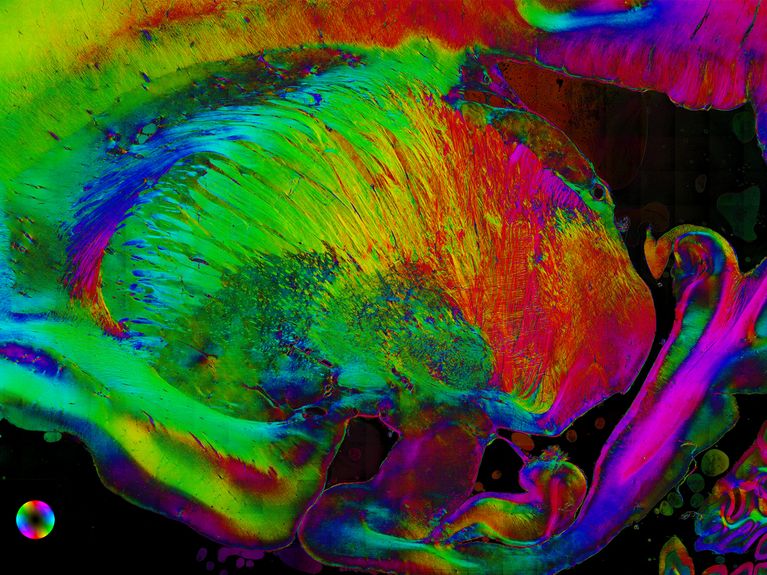
Story #27
Exploring the Future of the Digital Neurosciences
EBRAINS offers researchers digital access to the only brain atlas of its kind. In this way, the platform deepens our understanding of this crucial organ – and supports the development of new medical and technological applications.
EBRAINS (European Brain Research Infrastructures) was created as part of the Human Brain Project, a major European research project that brought together worldwide knowledge on the human brain in the form of computer models and simulations. Experts from Forschungszentrum Jülich were essential contributors and Prof. Katrin Amunts was the last director of the project, which was successfully completed after ten years in 2023.
EBRAINS builds on that milestone: the digital platform offers researchers from around the globe access to the wealth of knowledge produced by the Human Brain Project. Its goals are to support research that deepens our understanding of how the brain works, to implement the resulting findings for the benefit of neurology and psychiatry, and to spur on the development of neuro-inspired technologies, robotics and AI.
Through the collaborative platform, researchers from a diverse range of disciplines have access to data, models and software. On EBRAINS, they’ll find extensive datasets, analytical and simulation tools, and can share their own data with the community. Further, EBRAINS offers access to high-performance computers – which will include JUPITER, Europe’s first exascale computer, in the near future.
“Cracking the Code of the Brain” - Event Aftermovie
At the core of EBRAINS is the Julich Brain Atlas, which offers high-resolution 3D maps of the cellular architecture of nerve tissue for more than 230 areas of the brain – the most detailed brain atlas in the world, a veritable “Google Maps” for the human brain, it displays differences in the distribution, density and form of cells in three-dimensional maps. These differences reflect the variability between individual brains, offering a deeper understanding of the organ. The “BigBrain,” a high-resolution reference brain, is also part of the atlas, and was developed at Forschungszentrum Jülich in cooperation with McGill University in Montreal, Canada.
In the EBRAINS 2.0 project, launched in 2024, the platform is transitioning to a permanent research infrastructure so as to continue setting new standards for brain atlases, to combine multimodal neuroscientific and clinical data on the brain, and to drive the development of computer simulations for “digital twin” approaches.
Jülich-based researchers are now applying the expertise gained from close collaboration between brain research and computing in EBRAINS at the Joint Lab “Supercomputing and Modeling for the Human Brain,” a cross-program initiative in the Helmholtz research area “Information.”
EBRAINS is supported by 59 partner institutions in 16 European countries. The digital platform has received funding from the ESFRI Strategy Forum since 2021 and is currently one of the most important research infrastructures in Europe.
Picture: Markus Axer